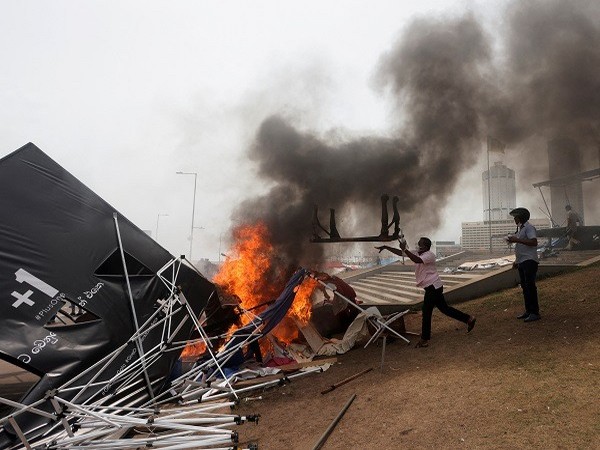

Over 200 people have been arrested in Sri Lanka on various charges including violation of curfew, attacking the public and causing damages to public and private properties since Monday as the authorities try to bring order back to the Island nation hit by a streak of violence amid the ongoing economic crisis.
Some 230 people have been arrested, with 68 of them remanded, Sri Lanka’s Daily Mirror reported Police spokesperson Senior Superintendent of Police (SSP) Nihal Thalduwa as saying.
The police spokesperson further said that among the arrested, 71 were from the Western Province, 43 from Southern Province, 17 from Central Province, 36 from North Western Province, 47 from North Central, 13 from Sabaragamuwa and two from Uva Province.
The police forces also publicly released pictures of several people and sought public assistance to identify and arrest them for “indulging in violent attacks on unarmed, peaceful protesters at Galle Face and Kollupitiya on May 9,” Daily Mirror reported.
The island nation saw a series of violent incidents including the burning of houses of several parliamentarians and former Prime Minister Mahinda Rajapaksa after a clash between a pro-government group and anti-government protestors near the residence of the Prime Minister of Sri Lanka.
Mahinda Rajapaksa resigned from the PM’s post shortly after the incident, and Ranil Wickremesinghe was sworn in as the new Prime Minister on Thursday.
Sri Lanka is facing its worst economic crisis since independence with food and fuel shortages, soaring prices, and power cuts affecting a large number of the citizens.
The economic situation led to huge protests with demands for the resignation of Prime Minister Mahinda Rajapaksa and President Gotabaya Rajapaksa, with the former finally succumbing to public pressure and stepping down from his position as the Sri Lankan Prime Minister.
Ranil Wickremesinghe was appointed the Sri Lankan Prime Minister for a record sixth term. He has given his assurance to the people of Sri Lanka that he will ensure the supply of petrol, diesel, and electricity to the island country.